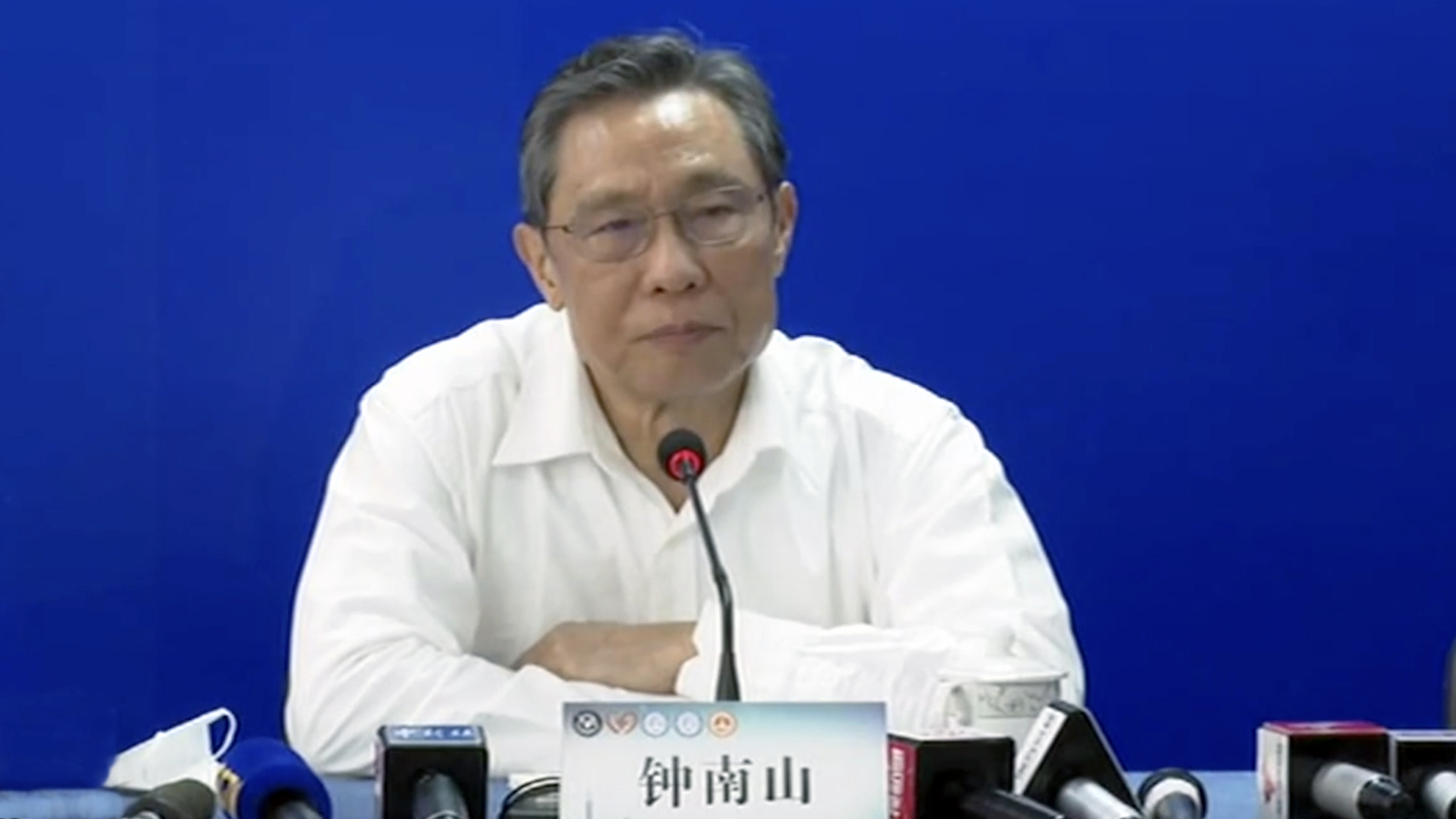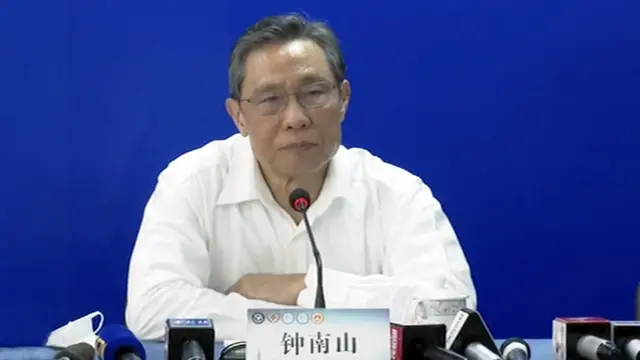
Zhong Nanshan, the head of China's high-level expert team on the COVID-19 epidemic, said on February 27, that China was confident the outbreak of new coronavirus disease will be brought under control by the end of April. [Photo: CGTN]
Note: The following article is taken from the Chinese-language opinion column "The Real Point."
Over the past few decades, the prediction of the “collapse of China” made by some Western scholars and played up by some Western media has failed time and again to materialize. Similar narratives, born of narrow political motives, emerged after the COVID-19 outbreak hit China. Described as China's “Chernobyl moment” the incident was meant to turn into an existential crisis as the country was supposedly incapable of handling public health emergencies. Such a comparison has once again turned out to be illusionary.
A World Health Organization-China joint inspection report issued on Saturday said that “China has rolled out perhaps the most ambitious, agile and aggressive disease containment effort in history,” which had effectively contained the transmission of the virus and provided vital lessons for the global response.
What China has done in the battle against the disease has led to a review and re-evaluation of the country’s system of governance. An opinion piece published on Thursday by Australia’s ABC News came up with a question: “What if the Chinese Communist Party teaches us all a lesson?”
Whether a system is good or not has to be tested through practice. The author noted “consider how China has managed the coronavirus fallout, and then ask if we would be as effective?” He continued to compare what has been done in China to curb the virus and what could be done in Australia should an outbreak hit the country: “The party locked down the epicenter of the virus outbreak: Hubei province. A total of 57 million people grounded. ... The World Health Organization called it unprecedented. Imagine us trying to lock down even a suburb?”
This virus knows no boundaries. It comes as a test for the system of governance of both China and Western countries. At the critical moment of global epidemic prevention and control, some Western media are still politicizing virus containment efforts. The New York Times has suggested that such efforts, including sealing off cities and ordering people to remain indoors, would be ‘difficult to replicate in democratic countries with a greater emphasis on protecting civil liberties’. The Atlantic magazine published an article saying “democracies are better at fighting outbreaks.”
However, what really happened in the United States was that the Centers for Disease Control and Prevention (CDC) experts and White House officials differed on the COVID-19 outbreak situation in the country with conflicting messages. Democrats and Republicans have traded verbal jabs over how much money should be spent on containing the virus.
What’s even worse, a suspected case of a COVID-19 patient on a ventilator sent to the University of California Davis Medical Center was left undiagnosed for almost a week because CDC officials initially ruled out a test for the virus as they believed the patient's case didn’t match the CDC's criteria. If these approaches are what democracies are better at, God bless their citizens.
COVID-19 is an enemy of humanity. To overcome it, we need scientific approaches, rationality, solidarity and cooperation. As Bruce Aylward, a senior WHO advisor who led the team of specialists, pointed out, “the only successful measures we know so far to contain COVID-19 as it has here in China.” Politicizing the epidemic and slandering China will not prevent the spread of the virus, but lead to missing out on opportunities to curtail the epidemic.
 简体中文
简体中文

